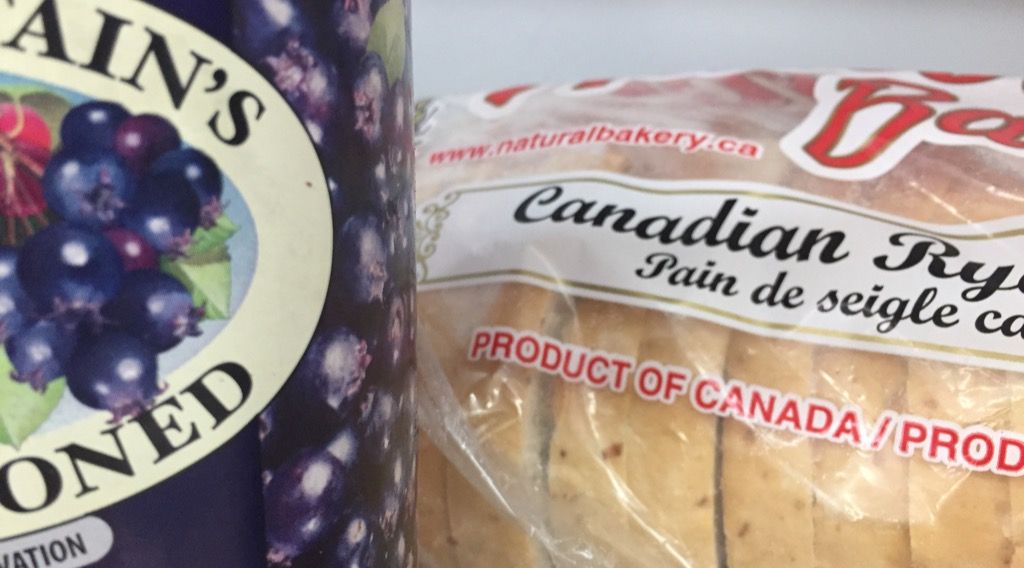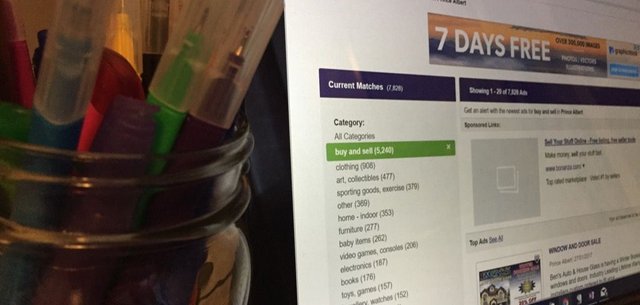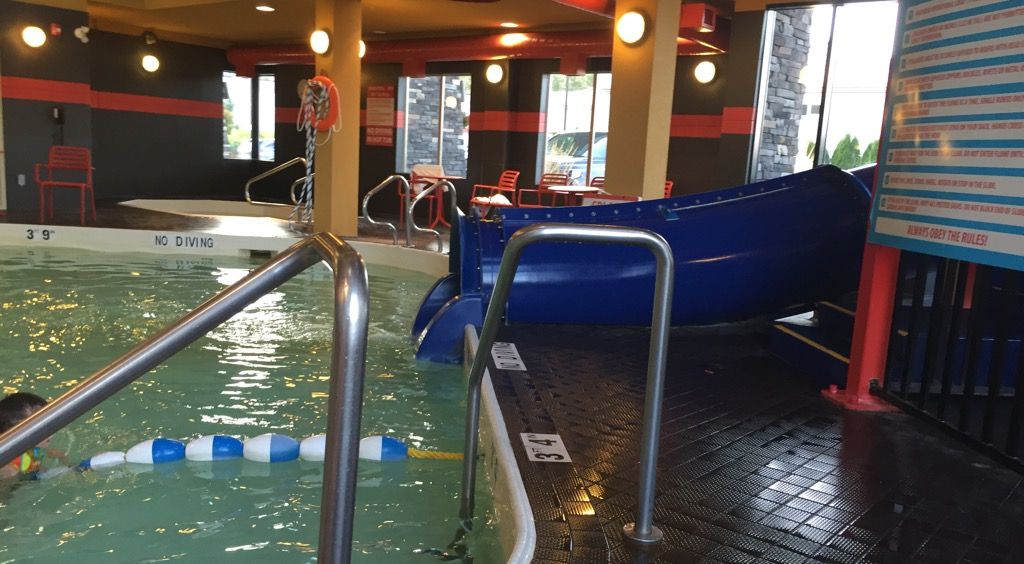Someone, somewhere, started a rumour that it’s impossible to have a strong economy and a healthy environment. Then they drew a line between the two and suggested we all choose a side.
Well don’t.
This is lazy thinking.
It underestimates people’s ability to adapt to change and solve complex problems. It ignores the incredible work that industries are already doing to improve environmental stewardship while fostering economic success. And, worse of all, it makes it seem like there’s nothing we can do as individuals to balance the interests of both, so why bother to try.
The truth is individuals can have a very big impact on both the economy and the environment just by the choices they make on how and where to spend their money.
Here’s a few things that we can all do to support both.
Buy local — as much as you can, as close as you can
Think about who you’re giving your money to. Who receives the lion’s share of the profits? Who is involved in the production chain? How much of that money will cycle back into your community and how much will filter out?
When we choose to give our business to the local guy, it keeps more of our money circulating within our local economy. It also strengthens our community by bolstering relationships, in part because you might even get to talk to the person making the thing or doing the work.
And buying local has huge benefits for the environment, namely because products aren’t being shipped hundreds of thousands of miles to reach you. Which often means they need less packaging.
Some, like 100-Mile Diet authors Alisa Smith and J.B. MacKinnon, have tried a more extreme version of this idea. But there are so many ways to buy local without drastically altering your lifestyle. Maybe for you, it’s just making a concerted effort to choose the most local option at your grocery store. Our favourite jam (next to my grandma’s) is produced less than an hour from where we live, and we can get it at Costco.

Maybe buying local means choosing items that are locally crafted or hand-made. Maybe it’s buying products and services from businesses that are locally owned. However we choose to do it, the more we look for great local options, the more we see.
Buy less, but buy better quality
This is particularly true for things like clothing. I like buying clothes and getting good deals on them. I like to see how many items I can put in my online shopping cart for under $100. It’s exciting if I can get that number over 20.
But that feeling is only temporary. And then what? I have a closet full of cheap clothes that I rarely wear, often because they lose their appeal after the second wash. No wonder 85 per cent of clothing ends up in a landfill.
I used to think, “No worries. I’ll just donate a bunch of stuff to make room in my closet so that I can continue to shop guilt-free!” But then I read this inconvenient truth …
Nobody needs more clothes. Nobody.
This applies to more than just clothes, but clothes make a good example.
Instead of going for the cheapest option, try choosing the better option. Pay more for it, if you must. In fact, pay as much as you can. Odds are, the time, sanity and landfill space you’ll save by buying something that you like (for more than five minutes) and something that lasts (for more than 10) will be more than worth it in the end.
Buy and sell second-hand

According to a report by Kijiji, Canada’s second-hand economy contributed as much as $36 billion to the GDP in 2015, with roughly 85 per cent of Canadians buying or selling second-hand goods. Here’s why you should be a part of that group, and why you should keep it up if you already are:
- You’ll likely find what you want at a lower price than buying new.
- When you buy used, you’re putting your money directly into your neighbour’s pocket.
- When you sell used, you’re putting money in your own pocket and re-entering the economy.
- Either way, you’re keeping good quality items out of the landfill.
- And you’re helping to create jobs (cause the second-hand economy creates hundreds of thousands of them).
But if you’d rather just generously donate your used goods (even clothing), you can still take advantage of second-hand market tools like Kijiji, Craigslist and online classified to connect your stuff to the people who want and need it.
Repair, don’t replace
Last summer, during a visit to the Calgary Zoo, I watched a western lowland gorilla named Kioja desperately try to catch a few winks while holding her five-month-old baby, who had kept her up for hours the night before. I also had a five-month-old baby who’d kept me up for hours the night before, so Kioja and I had something in common.
But while my biggest challenge was a lack of sleep, Kioja’s biggest challenge is the fact that her species’ is critically endangered. The population of western lowland gorillas has dropped by more than 80 per cent, due in large part to loss of habitat. And one of the reasons they’re losing their natural habitat is because a mineral that we need to make our cell phones work is mined in areas where gorillas live.
So when you drop your cell phone and smash the screen, don’t just stick it in a drawer and buy a new one. Even if your plan is up for renewal. Even if Apple has just released it’s latest, marginally improved model. Instead, consider getting it repaired.
Because there are people who will do that for you.
Many in our toss-it-in-the-trash, out-of-sight-out-of-mind society might be surprised to learn that the repair industry still exists. (Ok, I’ll admit that when a co-worker told me she was having her shoes repaired, I was like, “Really? Cobbling is still a thing?”) But it exists indeed. In fact, there are businesses geared at fixing all kinds of stuff. Jacket zippers. Hard drives. Dishwashers. Bicycles. Furniture. People.
You name it. They’ll fix it.
And if they absolutely can’t fix it, then please recycle.
Spend money on experiences instead of things

Research shows that giving others the gift of an experience instead of material goods fosters better relationships and makes people feel happier and more satisfied. My personal experience tells me this is true. Because with three kids with crazy schedules, I would take a night out with my husband over a piece of jewellery any day. Hell, I’d even take a night out by myself.
And when I ask my kids what their favourite parts of the past year were, all of their answers centre on things that they did, like our family road trip, not on things that they got.
According to a 2016 survey by Bullfrog Power, nearly half of Canadians prefer experiential gifts, and nearly three-quarters believe that buying experiences is better for the environment than buying material goods. Of course, the economic and environmental impacts depend on the type of experience you choose and where it’s located, but you’re really only limited by your creativity (and maybe your budget). Here’s a few ideas to get you started:
- sports tickets
- concerts, movies or theatre performances
- classes (art, cooking, etc.)
- memberships (i.e. gym, club)
- gift cards to restaurants, coffee shops and pubs
- waterslides, trampoline parks
- hotel or spa services
Change is about progress, not perfection
All of this sounds good in theory, but isn’t necessarily easy in practice. For example, I have yet to find a Canadian grown coffee bean, but I’m not about to (gasp) give it up or (blech) buy it used.
Money and time are finite. It can be more convenient to do all our shopping at a big box store. It can be easier to just buy what we need without worrying about where it comes from. It’s often hard to justify paying a higher price, even occasionally, when your budget is already tight.
But ultimately, my goal isn’t to only do the things I’ve listed above. It’s to do more of them.
Hi! I am a robot. I just upvoted you! I found similar content that readers might be interested in:
http://redhens.ca/2017/02/economy_vs_environment_five_ways_you_can_support_both/
Downvoting a post can decrease pending rewards and make it less visible. Common reasons:
Submit
Consider also the whole alternative energy economy that is emerging! The transition to renewable power (particularly solar) has opened enough jobs in the states to eclipse all of the CONG (Coal, Oil, Natural Gas) jobs. With that capability the whole system can be decentralized and provide for all.
The only thing that is holding it back is the fact that it is not able to be controlled. Whereas if the powers that be move down the road to renewables can establish its future, while maintaining fossil fuels will lead to economic collapse.
Simply go solar.
Downvoting a post can decrease pending rewards and make it less visible. Common reasons:
Submit